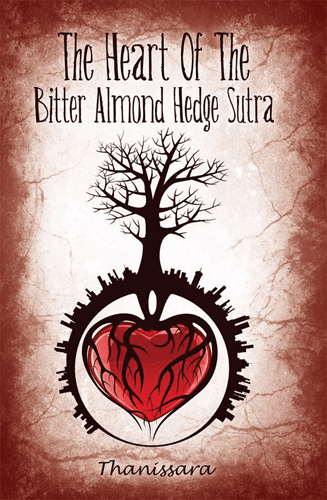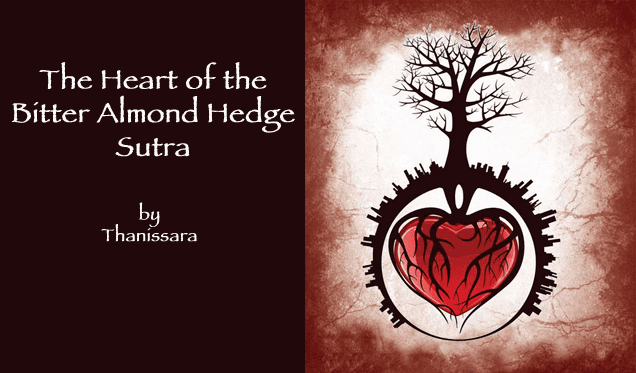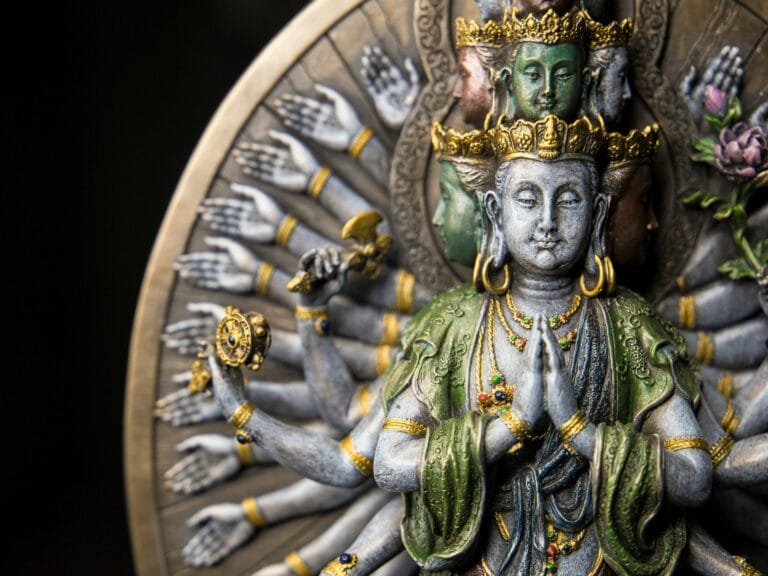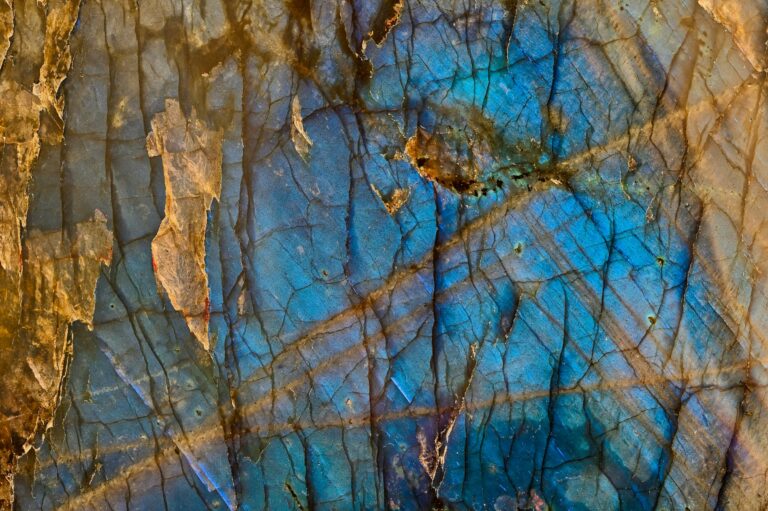Shariputra, be here always … .
Return to your original heart,
leave distorted dream-thinking far behind,
leap beyond fear,
and live without walls of the mind.
Always remember your deepest heart is true …So sit the night patiently through
and gather you wayward mind.
Take up your own power
as in your heart
is the earth’s body …
plunge your life
into your unfathomable yearning …
 Core to One Earth Sangha’s mission is the cultivation and proliferation of the dharma of climate change. The Heart of the Bitter Almond Hedge Sutra is just such an offering, delivered in epic verse. Through this new text, renowned teacher Thanissara has the courage to make the connection between genocide and ecocide, colonialism and our current environmental crisis.
Core to One Earth Sangha’s mission is the cultivation and proliferation of the dharma of climate change. The Heart of the Bitter Almond Hedge Sutra is just such an offering, delivered in epic verse. Through this new text, renowned teacher Thanissara has the courage to make the connection between genocide and ecocide, colonialism and our current environmental crisis.
Juxtaposing the mystical Heart Sutra of Mahayana Buddhism with the majestic beauty of the African landscape, the haunting voices of First Nation San, and the brutal legacy of South African apartheid, Thanissara’s text pivots on the Bitter Almond Hedge as a symbol of the separation. “The inception and first demarcation of apartheid began with the planting of the bitter almond hedge (brabejum stellafifolium) by the pioneer governor Jan van Riebeeck, in about 1666. It was one of his first acts on arrival at the nascent colony of Cape Town. The intention was to create a boundary and isolate the white settlers from the KoiSan and other Africans with whom, nevertheless, they needed to trade. The hedge became the first symbol of the laager, (circled wagons to ward off the enemy), and the later gated communities that define large areas of South Africa’s contemporary cities, particularly in Johannesburg.”
Speaking to the children of the conquerors, Thanissara offers hope for our deeply wounded hearts. Linking the objectification and abuse of First Nations with the objectification and abuse of the land, she declares the “ultimate apartheid [as] the mind’s own division against the heart.” Apartheid, in this context, is but one example of the myriad of ways in which the mind has erected walls against the heart. Drawing on the Buddhist text of the Heart Sutra (Prajna Paramita Hrdaya Sutra), it is to this heart, “which is deeper and more aware, and which intuitively knows the ‘intimacy of all things,’” Thanissara encourages us to return. “It is this fundamental separation from the heart’s sensitive resonance with life … that generates escalating spheres of disconnect and madness. The ultimate madness is the current drive for pathological power and obscene profit which is killing the ecological systems that our collective lives depend on.”
In The Heart of the Bitter Almond Hedge Sutra, Thanissara simultaneously breaks our hearts and offers us hope. A hope that comes with mindful awareness and a turn towards our own wise and sacred hearts. As Thanissara explains in her introduction to the text:
“At its core, the Heart Sutra imparts courage. This is the courage of the unfettered, free, and alive heart inherent within the deepest seat of inner listening. This is the heart that knows intuitively the ‘intimacy of all things.’ This heart is our birthright, a gift from the divine. … It exists within the sacredness of the Earth and within each living thing, each breath, our bodies, our sexuality, our relationships, our work, and all manifestation. It is the reclamation of this sacredness that is our task.”
Here is the faith of the wild warriors
Who leave dream-thinking far behind.
Who leap beyond the walls of the mind.
Who know the intimacy of all things.
And who return to this, our human
that feels the scream
in each mindful moment
and chooses
to soften.
To breathe the mystery.
To enter the unknown gate.
To love fiercely every living thing,
right down to the last blade of grass.
The Heart of the Bitter Almond Hedge Sutra is available in its entirety here.
Thanissara embodies the integration of the contemplative with the activist. Trained in the Ajahn Chah Forest Tradition, she was a monastic for 12 years. She and husband Kittisaro founded Dharmagiri in South Africa where they integrated activism on AIDS with hosting Theravadan retreats. As senior teachers at Spirit Rock, Thanissara and Kittisaro later co-founded Sacred Mountain Sangha based in California. She has an MA in Mindfulness-Based Psychotherapy from the UK, and is author of several books, including Time to Stand Up: An Engaged Buddhist Manifesto for Our Earth — The Buddha’s Life and Message through Feminine Eyes.








